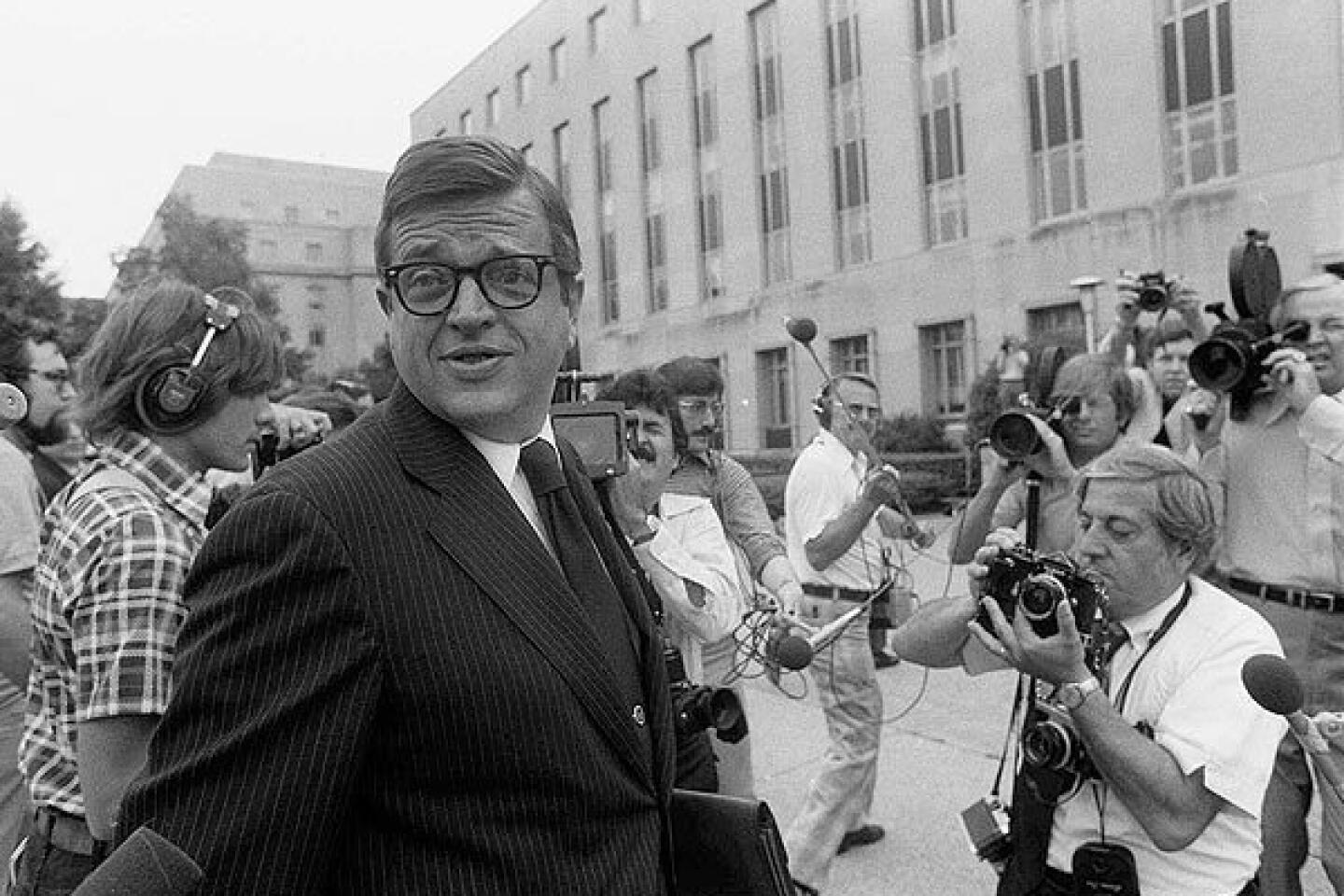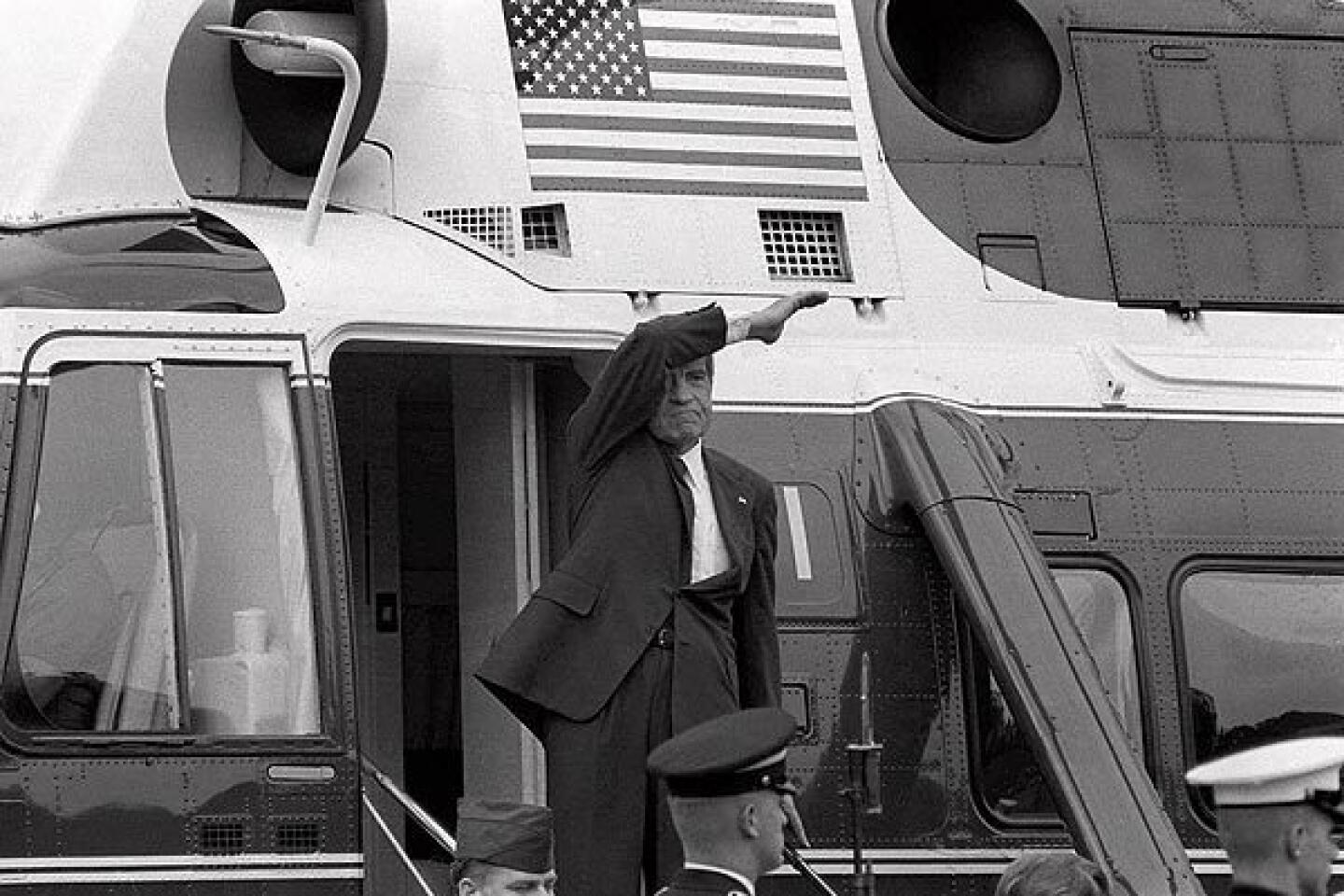The mysterious life of James McCord, Watergate burglar whose death went unnoticed for 2 years
- Share via
In the mid-1990s, the Discovery Channel aired a five-part series on Watergate, calling it a “refresher course” on the audacious White House scandal that drove President Nixon from office.
It might be time for a sequel.
There was a time when the shadowy cast of characters behind the break-in of the Democratic national headquarters were household names, as familiar to Americans as those on a lineup card — G. Gordon Liddy, E. Howard Hunt, John Ehrlichman, on they went.
But the years have not been particularly kind to Watergate.
How else could James Walter McCord Jr. — the former CIA operative who helped lead the infamous break-in and later tied it directly to the White House — slide into such obscurity that his death, at the age of 93, went unnoticed for nearly two years?
Without fanfare or a public announcement, McCord died June 15, 2017, at his home in Douglassville, Pa.
His death was first noted on the website Kennedys and King, an activist group lobbying for full disclosure of all records relating to the assassination of President John F. Kennedy. The U.S. Department of Veterans Affairs confirmed his death on its national gravesite locator site, and the Washington Post, which broke much of the Watergate scandal, obtained his death certificate and reported that he died of pancreatic cancer.
Of all the Watergate characters, McCord was the most puzzling, a retired CIA operative who cloaked himself in several layers of mystery and somehow ended up on a security detail for Nixon’s reelection team.
Carrying briefcases and walkie-talkies, McCord and four Cuban nationals who made up a clandestine burglary team known as the “plumbers” broke in to the Democratic headquarters in the Watergate building. While McCord and the others scoured the offices, Liddy and Hunt — equally compromised ex-spies — ran the operation from another hotel room.
But the break-in was as sloppy as it was bold, and the five plumbers were arrested when a security guard noticed the door ajar to the Democratic headquarters, a piece of tape covering the lock. Liddy and Hunt fled but were arrested the next day.
McCord later said that it was never altogether clear to him what they were looking for and that he was working on vague directions to take photos of anything that appeared to be related to money. Watergate was a single chapter in Nixon’s larger quest to get dirt on his political opponents, whether it was their sex lives, tax records, drinking habits or marital problems. But it quickly became the story, a desperate effort by a deeply paranoid president trying to hold on to power.
Indicted, McCord pleaded guilty and then, to get out from under a potential 45-year prison sentence, handed prosecutors what they were seeking — a road map connecting the White House to the crimes.
“There was political pressure applied to the defendants to plead guilty and remain silent,” McCord wrote to the court. He later told the court that John Mitchell, the reelection committee chair and Nixon’s former U.S. attorney general, had approved the break-in.
“Even if it meant my freedom, I would not turn on the organization that had employed me for 19 years,” he wrote. “I was completely convinced that the White House was behind the idea and ploy which had been presented, and that the White House was now turning ruthless.”
McCord served four months in prison.
Born Jan. 26, 1924, McCord grew up in small-town Oklahoma, the son of a public school teacher. He was in the Army Air Force during World War II, and later earned a bachelor’s degree from the University of Texas and a master’s from George Washington University. Little is known about his years with the FBI and CIA. What he did, and where he did it, is equally unclear.
In the years after Watergate, McCord slipped back into anonymity. He ran a security firm in Colorado and later dabbled in alternative energy.
A list of survivors was not available.
40 years past Watergate: A legacy evolves — and questions linger »
More to Read
Start your day right
Sign up for Essential California for the L.A. Times biggest news, features and recommendations in your inbox six days a week.
You may occasionally receive promotional content from the Los Angeles Times.









